#miss bates
Text

Miss Bates came to the carriage door.
Emma by Jane Austen (illustration by Hugh Thomson) /
Emma. (2020) dir. Autumn de Wilde
#emma.#emma (2020)#jane austen#anya taylor joy#miranda hart#emma woodhouse#miss bates#emma book#emma (1815)#emmaedit#emma2020edit#janeaustenedit#filmedit#period drama#perioddramaedit#jane austen parallels#book illustration#parallels#picspam#my edit
112 notes
·
View notes
Text


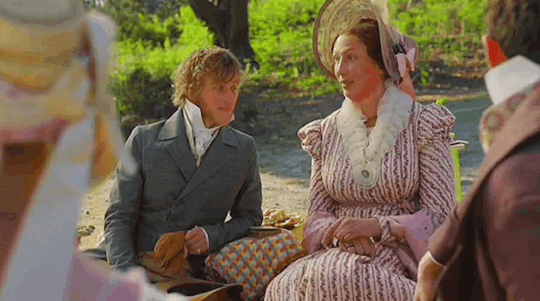
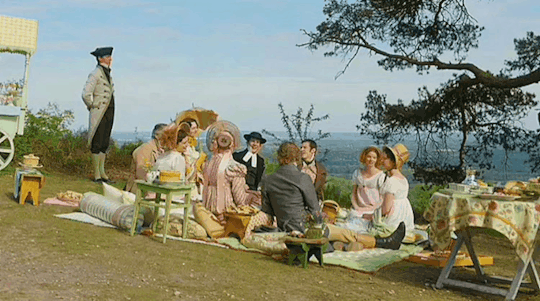

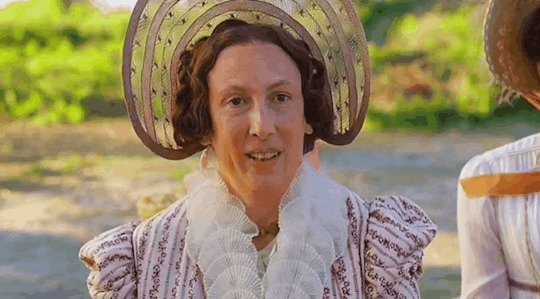



EMMA (2020)
dir. autumn de wilde
#emma 2020#jane austen#costume drama#period drama#perioddramaedit#perioddramagif#long post#emma woodhouse#mr knightley#frank churchill#miss bates#anya taylor joy#johnny flynn#callum turner#miranda hart#my gifs#mine
93 notes
·
View notes
Text
Jane Fairfax and Emma Woodhouse have never been friends. Mr. Knightley says it's because Emma is jealous, but she doesn't act jealous. She is quick to praise Jane's accomplishments (when they aren't being bragged about by Miss Bates) and prior to age 8, Jane would not have had a good education. The only time she is somewhat jealous is when she's slightly worried that Knightley might actually like Jane. So why weren't the girls friends then in childhood? We know they grew up together until Jane left to live with the Campbells.
I think Miss Bates is probably a huge reason, Emma cannot stand her and her constant bragging about Jane. Even without jealousy, that would get old very quickly. I mean we all know this lady, who brags about their family member, it's awful. So being friends with Jane is a package deal of seeing Miss Bates far more often.
Secondly, children hate being told to be friends with someone, adults hate it too. Everyone always saying Emma and Jane should be best friends just because they are the same age gives me flashbacks to forced friendships in my own childhood. It rarely works.
Thirdly, this is a two way street and Jane gives nothing. Emma tries, she makes a resolution that it will be better this time and is met with vague, short responses. Now was Emma being somewhat nosey? Yes. But she wants to hear about Weymouth and gets almost nothing. It's natural to talk about a trip! It doesn't even seem like Jane offers another subject:
She was, besides, which was the worst of all, so cold, so cautious! There was no getting at her real opinion. Wrapt up in a cloak of politeness, she seemed determined to hazard nothing. She was disgustingly, was suspiciously reserved.
However, I think the real problem is the social discrepancy between Jane and Emma. We know Jane thinks about it; she brings up her fate frequently. Emma doesn't even need to marry, Jane is to be a governess. She is at the bottom of the gentry and Emma is near the very top. The only time in the novel that Jane comfortably talks to Emma is when her engagement is finally public and secure and she has assumed Emma's level in society.
And that makes sense! Emma is supposed to act like Miss/Mrs. Bates is an equal (roughly) but she sends the women charity food and transportation. It is inherently awkward. It's actually no wonder they've never been friends.
I hope you enjoyed my random, jumbled TedTalk.
#jane austen#emma#jane fairfax#emma woodhouse#mr. knightley#miss bates#friendship is two way#we never see Jane try either#so it's unfair to put all the blame on Emmers
198 notes
·
View notes
Text
Mrs Bates’ husband is the former vicar of Highbury; which means that Mrs Bates used to live in the house that Mr Elton now inhabits. Right? Miss Bates and her sister — Jane Fairfax’s mother — grew up there. Jane Fairfax’s mom lived there until her marriage, and then … returned after her husband died? And died in that house, when Jane was three? And Jane herself lived there until she moved in with the Campbells?
So when adult Jane visits Mrs Elton, she’s visiting a house that probably has a lot of un-fun memories. And when Mrs Elton comments to Jane (indirectly) on the house being small, she’s disparaging those memories, and disparaging her mother, and disparaging her grandmother, who was kicked out of that house after her husband died.
I understood that Mrs Elton is constantly demeaning Jane in a way that’s somehow more insulting for being so careless; but I hadn’t picked up on this aspect of it.
(Jane Austen’s World, I thank you.)
Does Mr Knightley hold the living, or Mr Woodhouse? If it’s Mr Woodhouse, I hold Mr Knightley in even higher regard, because he has zero obligation to the Bates women and yet provides for them as he can. I wonder if he feels guilty for not marrying Miss Bates. They must be close in age.
116 notes
·
View notes
Text
I wish I could say I related most to any of the austen protagonists but in my heart of hearts I know I'm mrs. bates. I too thank people excessively when they perform basic decency and I never ever shut up
9 notes
·
View notes
Text
I just spent four hours watching Emma (2020) and Pride and Prejudice (2005) and I have to say, I have never loved Jane Austen characters so much. I just love the pure curiosity and kindness of Mr. Bingley and Miss Bates and I love how Emma knew when she was wrong, and Anya Taylor Joy having the perfect facial expressions and being the best possible actress for Emma. I love how Jane knew she was hopelessly in love with Mr. Bingley and loved him honestly. I love how Elizabeth stuck up for herself no matter the rank, I love how Mr. Darcy was just so painfully introverted and Matthew MacFayden portrayed it. I love the deliveries on the lines and how during the confession scene of Mr. Knightley to Emma, they both started crying and she got a nosebleed. I love how everything feels so natural, so real, and the attention to detail is impossible. I just... I'm in love with these films and I don't know how I can see them ever again. I watched both films before, but these times sunk in a considerable degree more. My heart feels light. I want to be in love.
#emma 2020#emma woodhouse#mr knightley#austen#george knightley#jane austen#miss bates#anya taylor joy#pride and prejudice#mr darcy#fitzwilliam darcy#pride and prejudice 2005#elizabeth bennet#jane bennet#p&p 2005#p&p#matthew mcfayden#lizzie bennet#keira knightley#romantic academia#light academia#classic academia#dark academia
149 notes
·
View notes
Text

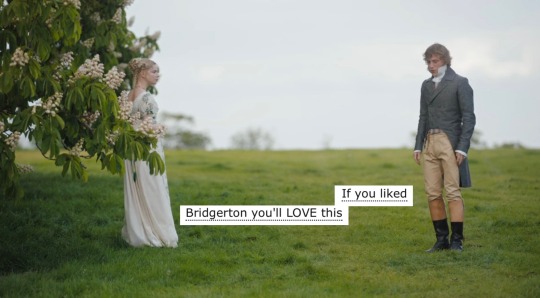
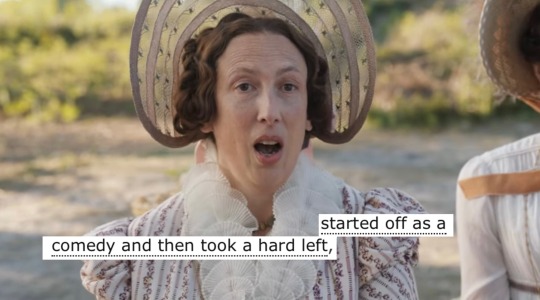

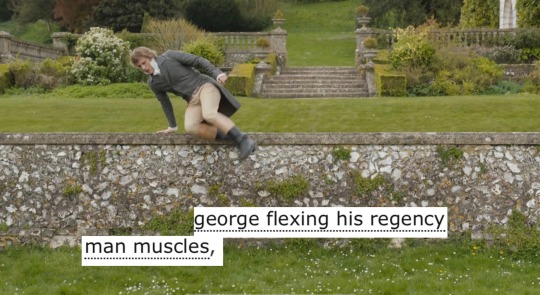
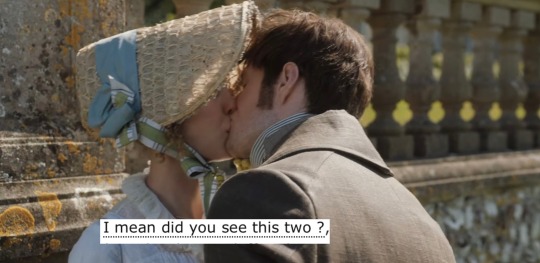

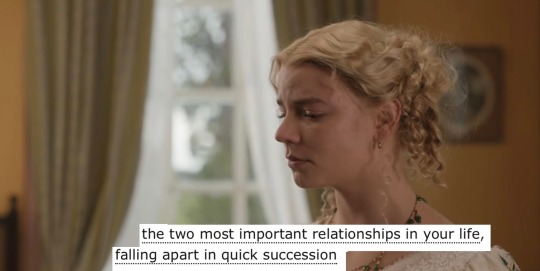
Emma. (2020) + ao3 tags
#jane austen#emma. 2020 dir. autumn de wilde#emma. 2020#emma#emma woodhouse#george knightley#mr knightley#harriet smith#Mr. Martin#miss bates#ao3 tags#regency romance#period piece
292 notes
·
View notes
Text

She loved every body, was interested in every body's happiness, quick-sighted to every body's merits; thought herself a most fortunate creature, and surrounded with blessings in such an excellent mother, and so many good neighbours and friends, and a home that wanted for nothing. The simplicity and cheerfulness of her nature, her contented and grateful spirit, were a recommendation to every body, and a mine of felicity to herself.
- a description of Miss Bates, in Emma, Vol. I, Ch. 03.
#quotes#fiction#novel#book#book snippet#bookblr#books and literature#emma#jane austen#miss bates#spilled ink#prose#words#classical literature
6 notes
·
View notes
Text
1st July: Emma is rebuffed
Read the post and comment on WordPress
Read: Vol. 3, ch. 9 [45]; pp. 256–257 (“and the following morning” to “‘in want of any thing’”).
Context
Emma invites Jane Fairfax to take a drive with her and is refused; she sends some arrow-root, which is sent back.
We know that this occurs “the following morning” (p. 256) after Emma’s first invitation to Jane.
For “arrow-root,” Jane Austen’s original manuscript had “arra-root.” Austen wrote to her sister Cassandra on November 26, 1815: “The Printers continue to supply me very well, I am advanced in vol.3. to my arra-root, upon which peculiar style of spelling, there is a modest qu:ry? [query] in the Margin” (Le Faye, p. 300, qtd. in Sutherland, p. 301). Kathyrn Sutherland writes that “The printed text’s correction to ‘arrow-root’ represents gain and loss—the regularized spelling and so immediate intelligibility, but the loss (now that we know it) of a rare clue to Austen’s own pronunciation. It is important to resist the assumption, however, that she was a consistent misspeller; some of her seemingly idiosyncratic forms were in fact permissible eighteenth-century variants” (pp. 301–2; see also Gilson pp. 64–5; van Ostade p. 130).
Readings and Interpretations
Repent at Leisure
Edgar Shannon Jr., whose reading of Emma is a conventional one according to which Emma must repent of her character flaws and wrongdoings to be morally redeemed by the end of the novel, writes of this incident as evidence that Emma’s “repentance” has begun:
The visit to Miss Bates produces […] evidence of Emma’s sincere alteration. “Her heart had been long growing kinder towards Jane” [vol. 3, ch. 8 [44]; p. 249]; and after Miss Bates’s account of her niece’s ill health, Emma invites Jane to spend the day at Hartfield, to go for an airing in the Woodhouse carriage, and to accept, from the Hartfield stores, some fine arrow-root. When Jane refuses the invitations and returns the arrow-root, Emma learns that a few days of attention cannot compensate several months of neglect; she understands that her former merits the present rebuff. Yet she has “the consolation of knowing her intentions were good” [vol. 3, ch. 9 [45]; p. 257]. (pp. 641–2)
Whatever its motive, Emma’s newfound focus on Jane ends up necessitating ego-saving measures: her reflection (upon learning that Mmes. Elton, Perry, and Cole had been admitted to see Jane) that she “did not want to be classed with the Mrs. Eltons, the Mrs. Perrys, and the Mrs. Coles, who would force themselves anywhere” (p. 256) seems a way of avoiding the realization that she in particular is not welcome. We may also wonder whether Jane’s message (“‘Miss Fairfax’s compliments and thanks, but is quite unequal to any exercise’”) truly represents “tremulous inequality,” or whether it is instead deliberately terse. Helen Dry points out that this sentence must be FID focalized through Emma, due to the hidden dative phrase “for Emma” implied in “impossible to quarrel” (p. 94).
Discussion Questions
Is Emma’s charity regarding the arrow-root an instance of good household management and genuine repentance, or is Emma (as Susan Korba suggests) only interested in Jane now that she (Jane) has been humbled?
Bibliography
Austen, Jane. Emma (Norton Critical Edition). 3rd ed. Ed. Stephen M. Parrish. New York: W. W. Norton & Company, [1815] 2000.
Gilson, David. “Jane Austen’s Text: A Survey of Editions.” The Review of English Studies 53.209 (February 2002), pp. 61–85.
Korba, Susan M. “‘Improper and Dangerous Distinctions’: Female Relationships and Erotic Domination in Emma,” Studies in the Novel 29.2 (1997), pp. 139–63.
Le Faye, Deirdre, ed. Jane Austen’s Letters. New York: Oxford University Press (1995).
Shannon, Edgar F. “Emma: Character and Construction.” PMLA 71.4 (September 1956), pp.
Sutherland, Kathryn. Jane Austen’s Textual Lives: From Aeschylus to Bollywood. Oxford: Oxford University Press (2005).
Van Ostade, Ingrid Tieken-Boon. In Search of Jane Austen: The Language of the Letters. Oxford: Oxford University Press (2014).
20 notes
·
View notes
Photo
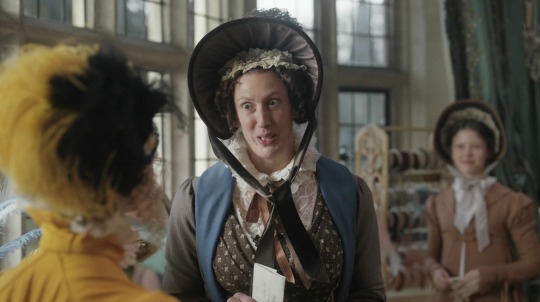
Miranda Hart as Miss Bates in Emma (2020)
[x]
5 notes
·
View notes
Text
The most effective bit of Emma is that by the end of a Miss Bates speech all I can think is Jesus Christ what a long winded woman oh my god
4 notes
·
View notes
Text
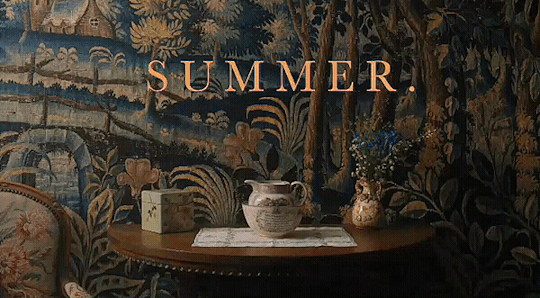
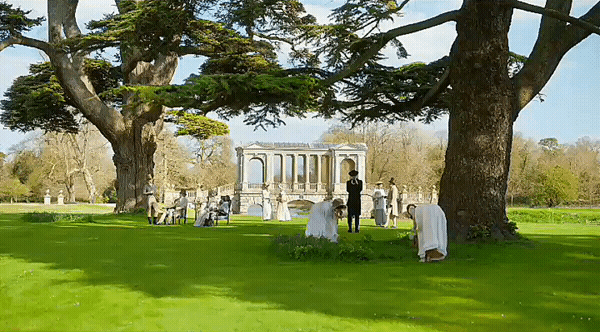
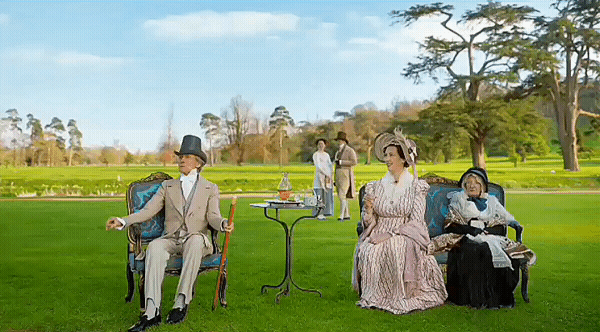
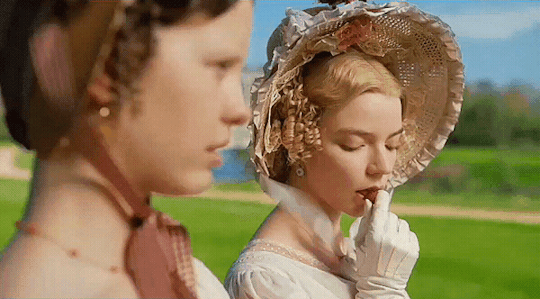

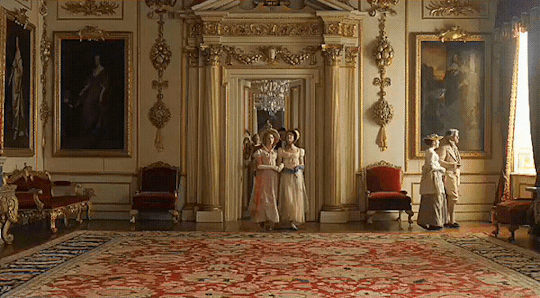




EMMA (2020)
dir. autumn de wilde
#emma 2020#jane austen#costume drama#period drama#perioddramaedit#perioddramagif#onlyperioddramas#perioddramasource#emma woodhouse#mr knightley#harriet smith#mr woodhouse#miss bates#jane fairfax#anya taylor joy#johnny flynn#mia goth#bill nighy#miranda hart#amber anderson#my gifs#mine
51 notes
·
View notes
Text
I empathize with Emma and I would gnaw off my own arm to get away from Miss Bates.
#emma#emma woodhouse#miss bates#theory poll#jane austen#polls#even though Miss Bates is sweet#I would rather die than have to visit her#It would be physically painful to me
211 notes
·
View notes
Text
genuinely, if you're one of the people who believes it's the palestinian people who are committing these crimes and who is excusing them because of it, unfollow me. its hamas. you're making excuses for hamas. i can not believe we have reached a level of stupidity and glorification of violence where people will look you in the eyes and tell you that this is just how oppressed people act. that they just go on killing sprees ever so often. that is gross and untrue.
#and if you think any person deserves to be r*ped killed etc? fuck off.#i genuinely dont really care anymore. looking at this websites reaction to violence aimed at a the population of a country they don't like#has shown me how trult deranged some of the people here are. like i had an argument with someone who said civilian deserve hamas' violence#'no one will miss you'#and i had a full on s*icide bate#complete with a description and the good ol' no one will miss you#and like. i dont really care. that person is clearly doing worse than i am#but if that is the reaction you get for saying 'k*lling people bad' i truly dont know if i can stand this website any longer
341 notes
·
View notes
Text


hashtag the power of women
#licherally are u insane miss babygirl!!!!#me and the five others who remember bates motel: THATS OUR GIRLIE!!!!!!!!!!!#olivia cooke#hotd cast#hotd#house of the dragon#txt.me
1K notes
·
View notes
Text






Dustin ! 🫵🏻
#Starset#Dustin Bates#missed u papi#so sad i couldn't meet him again this time :(((#but i got these real cool fotos!
30 notes
·
View notes